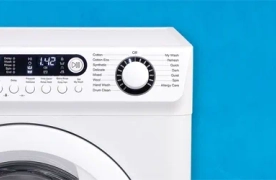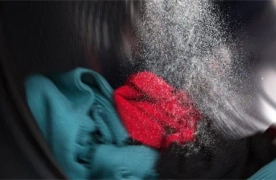19th December 2023
Below are some of the important differences you should be aware of between cheap washing machines and more expensive machines.
Cheap machines are made using lower-quality materials
Manufacturers of cheaper machines usually use cheaper materials and install cheaper parts. To save on overhead costs, manufacturers will use cheaper materials for the washing machine’s frame, motor, drum, pump, and bearings. Cheaper materials tend to degrade faster and encounter problems much more quickly. They can also be difficult or more expensive to replace or repair. Cheaper parts are also not usually recyclable, meaning they end up in landfills.
More expensive washing machines have a longer lifespan
Higher quality machines, such as Ebac washing machines, are designed to last for 10 years, whereas a cheaper washing machine usually has a maximum expected lifespan of 5 years. Many previous owners of cheap washing machines actually report that their machines began to encounter problems very quickly and needed to be replaced after a couple of years.
Cheaper machines have a shorter warranty
Unlike Ebac washing machines that come with a 7-year warranty, many cheap washing machines only come with a one or two-year warranty. If your machine breaks after this time, you will have to fund the cost of any repairs or replacements yourself. The length of the warranty is usually a good indication of how long the machine is expected to work, before encountering problems.
Cheap washing machines usually have fewer functions and settings
Cheap machines often don’t have as many wash settings available and other popular features such as delayed start, pre-wash and stain removal, and easy iron settings may not be available. Cheap machines may also have a less effective spin feature, meaning your clothes will not be as dry when your wash cycle is finished.

17th March 2024
When choosing your new washing machine, you may already know what features you are looking for,...
Continue reading
17th March 2024
Here are some tips for choosing a quiet washing machine: Look at the decibels (dB) for washing...
Continue reading
12th March 2024
One of the things you sacrifice when buying a cheap machine is the type of functions you have...
Continue reading